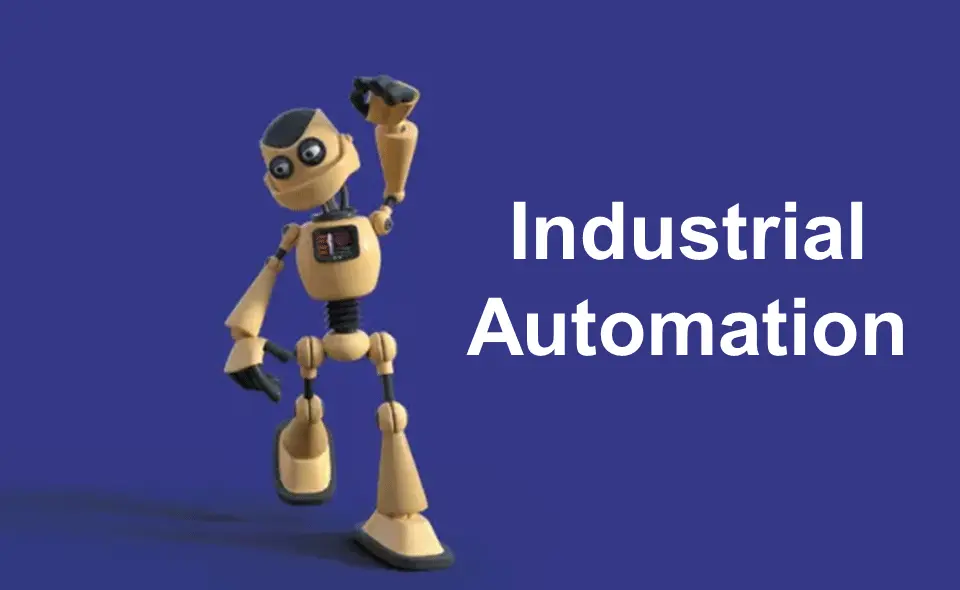
In the vast world of Industrial Manufacturing, a game-changer has emerged – Industrial Automation. Let’s delve into the nuts and bolts of this transformative technology and explore its various types that are reshaping the landscape of industries.
“In the era of Industrial Automation, precision becomes the cornerstone of manufacturing success.”
Understanding Industrial Automation
Industrial Automation is like having a smart assistant for factories. It involves using advanced technologies to control machinery and processes in manufacturing plants. Instead of human intervention for every task, machines are programmed to perform them efficiently. It’s like having a team of tireless and precise workers, but they’re robots!
The Core Benefits
Why is everyone buzzing about Industrial Automation? Well, it brings a bag full of benefits. First off, it boosts productivity. Machines don’t get tired or bored; they keep working tirelessly. Secondly, it enhances precision. The margin for error shrinks, ensuring products meet top-notch quality standards. Lastly, it cuts costs. With streamlined processes, companies save resources and become more competitive.
Types of Industrial Automation
Now, let’s unravel the various types of Industrial Automation that are making waves in the manufacturing sector.
1. Fixed or Hard Automation
Think of this as the ‘specialist’ of the automation world. Fixed Automation is designed for a specific task, like a robot on an assembly line repeatedly welding a particular part. It’s efficient but not the best choice for flexibility.
2. Programmable Automation
If Fixed Automation is the ‘specialist,’ then Programmable Automation is the ‘all-rounder.’ It allows reprogramming machines for different tasks, providing versatility. This flexibility makes it ideal for small-scale productions with varying requirements.
3. Industrial Robots
Enter the mechanical workforce – Industrial Robots. These are machines built to mimic human actions. They can weld, paint, assemble, and do many other tasks, making them an invaluable asset in modern manufacturing.
4. Computer Numerical Control (CNC)
CNC is the maestro of precision. It involves using computers to control machine tools like lathes and mills. This precise control ensures that each piece manufactured is an exact replica of the one before, maintaining consistency in production.
5. Collaborative Robots (Cobots)
Unlike their industrial counterparts, Cobots are friendly robots. They work hand in hand with humans, enhancing teamwork on the factory floor. Imagine a robot passing you a tool or assisting in a delicate task – that’s the charm of Cobots.
6. Process Automation
Moving beyond assembly lines, Process Automation takes charge of entire processes. It’s like having a conductor orchestrating an entire symphony of tasks, ensuring a smooth and synchronized operation.
7. Office Automation
It’s not just about machines on the factory floor; even the office gets a tech makeover. Office Automation involves using computers and software to handle tasks like data entry, communication, and documentation, making office work more efficient.
The Impact on Industrial Manufacturing
Now that we’ve uncovered the types, let’s explore how Industrial Automation is transforming the face of Industrial Manufacturing.
1. Increased Efficiency
With machines tirelessly working around the clock, efficiency is through the roof. Tasks that used to take hours now happen in minutes, speeding up the entire production process.
2. Improved Safety
Machines don’t get tired, and they don’t get distracted. This means a safer working environment for humans. Dangerous tasks can be assigned to robots, reducing the risk of accidents.
3. Quality Assurance
Precision is the middle name of Industrial Automation. Each product is manufactured with pinpoint accuracy, ensuring consistent quality. This not only satisfies customers but also builds a solid reputation for manufacturers.
4. Cost Savings
By optimizing processes and minimizing errors, Industrial Automation leads to significant cost savings. Companies can invest these savings in research, development, and staying ahead in the competitive market.
Practical Application
Let’s imagine a car manufacturing plant where Industrial Automation is at play. Robots, programmed for precision, handle welding tasks. This not only speeds up production but ensures each car’s quality is top-notch. In this scenario, Industrial Automation becomes the silent hero, making the manufacturing process faster, efficient, and error-free.
Real-world Impact
Consider a small business adopting Industrial Automation. With programmable automation, they can easily switch between producing different products without major setup changes. This flexibility allows them to meet diverse customer demands, expanding their market reach and securing a stronger position in the competitive business landscape.
“Embrace flexibility with Programmable Automation – the key to meeting diverse customer demands.”
Conclusion
In the grand theater of Industrial Manufacturing, Industrial Automation takes center stage. Its impact is profound, from the assembly lines to the office desks. As technology advances, we can only expect this transformation to deepen, bringing even more efficiency, safety, and quality to industries worldwide. So, buckle up, because the age of Industrial Automation has just begun, and it’s steering us towards a future of smarter, faster, and better manufacturing.

Allen‑Bradley PLC Systems























